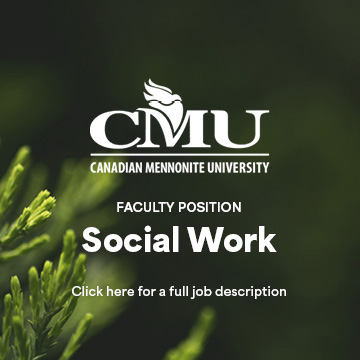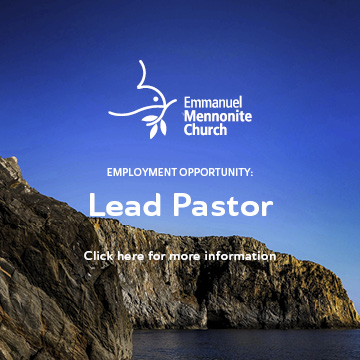Doubt is common to everyone, but it seems to be especially so for young adults, since we are the ones who are starting our own independent lives and have uncertainties about our future, ourselves, our faith, and so on.
Given that, the theme at the Mennonite Church B.C. young adult retreat, “I doubt it,” was an intriguing draw for the nearly 50 young adults from across the Fraser Valley who came to Camp Squeah in Hope from Feb. 8 to 10 with Tim Froese, associate pastor of Sherbrooke Mennonite Church, Vancouver.
The first night was free time for us mingle and to get to know each other. Games and snacks were shared in the main dining area, while others talked or read by the fire.
Our first session on Feb. 9, “Truth in the midst of contradictions,” was led by John Gifford. He looked at both the doubts and truths that come from Scripture. We had several small-group discussions during which we could share the doubts that we experienced from the Bible, such as why God would call people to war in the Old Testament and yet Jesus taught love for enemies in the New Testament. It was remarkably powerful to see how others shared similar doubts that I hold myself.
Gifford highlighted how much of Scripture depends on context, and raised an interesting point: While we consider history as “just the facts,” the Israelites wrote their history from eyewitness accounts, and for a purpose, since those were important for storytelling.
The afternoon was left as free time. Many played games or socialized indoors. Several people, including myself, went on hikes on the mountain trails behind Squeah. (See front cover.)
The evening’s session was led by Chris Lenshyn from Emmanuel Mennonite Church, Abbotsford. He focused on a fundamental question of doubt: “Why?”
He led with the story of Doubting Thomas, but followed with one which was closer to home: the story of how his wife’s cousin had been murdered in 1984 and the struggle that the victim’s family had gone through. They had grappled with doubt for more than 20 years, not knowing the “who” or the “why” of the murder. It was only after they had come to peace with it that the police announced they had cracked the case and found the man responsible, forcing them to face the experience all over again.
Lenshyn showed a video of his wife’s aunt, Wilma Derksen, describing her experience, and the 15 things she learned to let go of over the course of the ordeal, including fear, grief and the need to know (http://youtu.be/U7Byq9sW_XU). She also talked about how she and her family made the conscious choice to put love first and justice second, a profound but apparently liberating choice.
The final session, held on Feb. 10, was led by University of British Columbia astrophysicist Don Wiebe, and was entitled “Science: Meet Faith.” This was a talk I was especially curious about, since Wiebe is both a physicist and a Christian.
He showed a short video, Inventory of the Invisible, which brilliantly highlighted how much more there is that we don’t know than what we do know, despite centuries of scientific effort.
He then made the curious analogy that science is like an onion. He elaborated, saying scientists like Stephen Hawking are trying to peel away this onion layer by layer in order to get to the centre, to find what’s really going on at the core. But Wiebe felt it was the opposite: We are at the centre of the onion, trying to peel away the inner layers to find our way out, but each new layer is bigger than the last one.
On science and religion, he posited, “If religion comes from faith, and faith comes from me, then that’s a problem, since there is no objective, independent way to verify that. And as a scientist, how am I supposed to believe it?” But he raised the point that science has no absolutes either. It does not explain the world; it only makes models that simulate the world. So science is not free from doubt, either.
Morgan Govereau of Cedar Valley Mennonite Church, Mission, found peace in her doubts about faith and God. “What this weekend taught me most is that, even though you have doubts, God is willing to meet you there and push you forward. And I realize that he may not give you specific answers, but he will give you peace about not knowing everything,” she said.




Add new comment
Canadian Mennonite invites comments and encourages constructive discussion about our content. Actual full names (first and last) are required. Comments are moderated and may be edited. They will not appear online until approved and will be posted during business hours. Some comments may be reproduced in print.